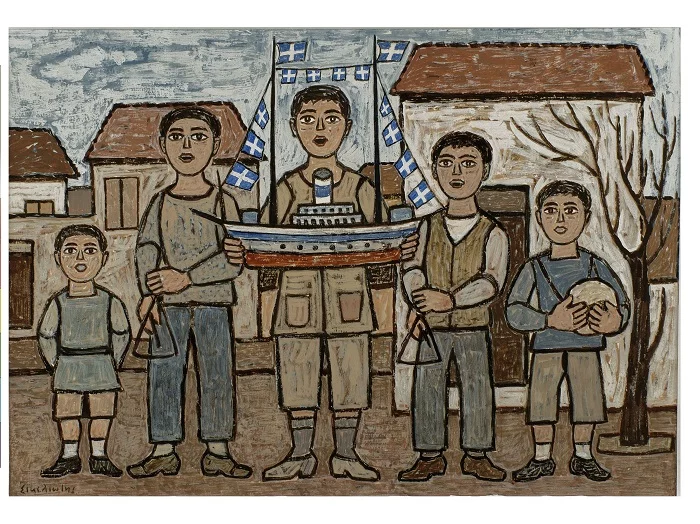In bustling city streets and quaint village squares, a timeless tradition unfolds as New Year's Eve descends upon Greece. Forget jingle bells and reindeer. Here, children, their faces bright and instruments in hand, become messengers of hope and cheer, carrying forward the ancient melody of Kalanta – Greek carols echoing through centuries.
From rosy-cheeked youngsters clutching traditional boats in bygone eras to iPhone-armed carolers in Gap hoodies today, the spirit of kalanta endures. These songs, some whispered from Byzantine times, weave a tapestry of wishes as diverse as the landscapes they traverse. Love, peace, health, joy, and wealth form the common thread, yet each region, island, and even village adds its own vibrant strand.
As one wise professor once quipped, "Where there are two Greeks, there will be three opinions." Imagine, then, the kaleidoscope of carols this translates to! Farmers serenade with dreams of plentiful bounties, seafarers pray for safe returns, mountain folk yearn for overflowing wine and cheese, and shepherds for sweet milk and honey. And who bestows these blessings? Why, none other than Agios Vassilis, the leaner, more serious Greek cousin of Santa Claus.
Before consumerism replaced tradition in the late 1980s, Greeks exchanged gifts on New Year's Day, honouring Agios Vassilis, St. Basil the Great. This bishop wasn't known for chubby cheeks and reindeer but for his immense kindness to the poor. Tall, lanky, and exuding restraint, he became the symbol of this sacred celebration.
So, when the night deepens, and clocks chime New Year's Eve (perhaps a tad later nowadays, thanks to modern indulgences), smiles bloom on youthful faces. Shiny triangles glint in their hands, ready to usher in the good tidings. In days past, fiddles, daoulis (deep drums), ceramic drums, lagoutos (stringed instruments), and even bagpipes might join the chorus.
Knocking on doors, they'd inquire with a melodious, "Na Ta Poume?" (Shall we sing you the carols?), and upon receiving a welcoming "Na Ta Peite" (Please Do), their voices would rise in fervent wishes for the year ahead. Sweets and coins would reward their performance, ensuring the tradition's sweet continuation.
The Kalanta tradition extends beyond mainland Greece, echoing in the hearts of displaced Asia Minor Greeks who carry the melodies of their lost homeland. One such example is the Kalanta of Cappadocia, a region in modern-day Turkey that once cradled a thriving Greek population, including St. Basil himself. Forced to leave in 1923, these Greeks brought their carols with them, weaving them into the new tapestry of their lives.
The traditional carols from Cyprus announce the start of a New Year on January 1 and ask that everyone follow the bright example of the enlightened one – Agios Vassilios from Caesaria
Traditional instrumentalists sing of "ploughs of silver" and long life from Crete, their voices serenading the night. And woe betide the stingy mistress who forgets the customary sweets and coins! With their playful bite, the carols can morph into humorous verses about unwelcome pests and vanishing beauty.
In an age of digital bells and virtual greetings, the Greek kalanta retains its enchanting charm. Listen to this joyful modern take by the innovative Greek jazzman Mode Plagal and witness how tradition seamlessly blends with contemporary flair.
Beyond the joyous melodies and playful threats, the kalanta holds a deeper meaning. The exchange of sweets and coins signifies the flow of positive energy. Money, a symbol of wealth, represents a form of energy. Giving and receiving during the kalanta ensures this energy keeps flowing, harmonizing vibrational levels and creating a beautiful collective rhythm as we enter the new year.
So, whether you encounter joyful carolers under glittering city lights or hear their voices echo through sun-drenched village streets, remember, you're witnessing a timeless tradition, a thread woven into the fabric of Greek culture, connecting past, present, and future through the vibrant tapestry of wishes, harmony, and a dash of good-natured humour.


